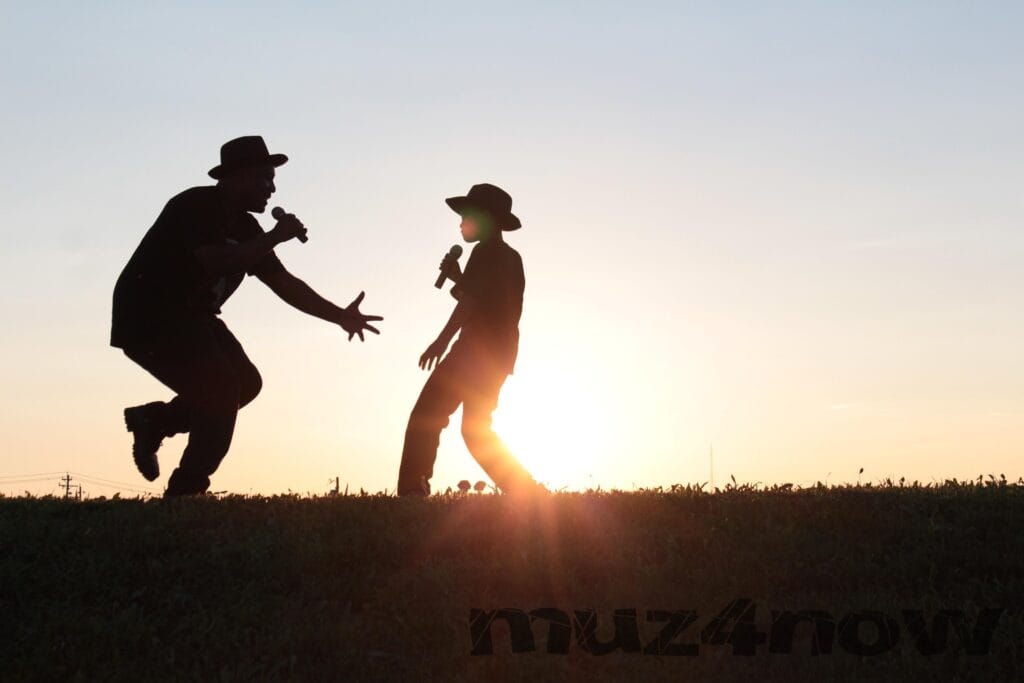Vocal tracking is challenging. And who is the judge of that?
Vocal Tech
I could say that the most challenging thing about recording vocal tracks is the technology. It’s true. Vocal tracks require as many or more plugins (or modules within plugins) than other tracks.
Typical vocal tracks benefit from a de-esser, a compressor, and an EQ. Depending on the style of music and whether the vocal line is a main melody or a harmony, you may want other plugins. For example, a limiter may be helpful to keep a lead part out front. Light distortion or clipping can also be tastefully added for resonance or other effects.
Mixing Singing Tracking

When I was mentoring with another singer-songwriter, he taught me this trick about vocal comping. You don’t have to sing everything perfectly all the way through. After you’ve recorded the verses, bridge (maybe), choruses, and reprises a few times, you can pick and choose. Whichever take I like the best, I can copy into a new track. Those selected performances become the final vocal track.
In other words, I don’t strictly do vocal tracking. It’s vocal comping with the collected best of becoming the singing line. There are rare exceptions, of course. “Wayfaring Stranger” is my best recent example of using a single take for the lead vocal.
But these are not the real reasons that vocal tracking is most challenging for me.
The Judge
No matter how good I’m feeling about my voice, I feel vulnerable almost every time I sing. Oh, sure: the level of self-consciousness varies. But that vulnerability is nearly always present.
No matter how much I may want to make this about what other people think or say, the truth lies within. Let’s face it, we get to choose how much we let the judgement of other people affect us. (Unless they have other power over us, of course.) Vulnerability is an inside job. It comes from my inner judgements about myself.
Voice Tracking
There’s been a huge upsurge in the use of “vocal” AI plugins. Using a large library of vocal sounds, these artificial representations of the human voice offer an alternative to this vulnerability. The trouble is, none of them sound human. Even after many hours of tweaking, they cannot come close to the beauty, complexity, and simplicity of the vocal body.
There may be uses for these fake voice plugins. I’ve used them as practice aids. But when it comes to delivering a song written by a human being, the human voice is still the best instrument. And so, I’m headed back to the studio to do more vocal tracking.
Discover more from Stan Stewart - @muz4now
Subscribe to get the latest posts sent to your email.

“AI plugins…. these artificial…..human voices …none of them sound human.” We have the same problem in painting, of course. “AI art” is, at best, handicraft, produced by a machine. In both cases, the products are interchangeable and have no “value.”
We agree entirely.
I agree totally with you both, yourself and Friedrich, regarding AI and lack of human touch. The Wayfaring Stranger vocal is perfect. It has grit (your voice affected by your head cold?) and resonates.
I was listening to a Tony Visconti YouTube explanation of how ‘Heroes’ by David Bowie was built. Both instrumentally and vocally. He took David’s vocals in one isolated recording with three microphones at different distances from him. To capture up close resonance with the first and then louder vocals captured by the two furthest mics. He only had one track left to capture the vocals. So needs must.
Human thought in getting around the problem solving, never before tried experimental ideas and producing ‘that’ song was a very interesting listen. Brian Eno’s electronic playing keyboard wizardry in collaboration in connecting with Robert Fripp’s sublime guitar work. Creating a diffent sound with sublime synergy.
A very thoughtful write up Stan. Cheers.
Thank you. So cool that you thought of the story of “Heroes”.
Breaking down David Bowie’s Heroes by Tony Visconti and Erin Tonkon on YouTube is fascinating to watch. Especially when looking at how this song developed with off the hoof thinking. Gives great vibes for our own endeavours Stan. All the best.